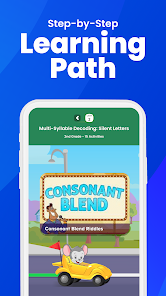Early childhood is the age of experiencing wonders, being curious, growth and development. Children during this phase learn as much as possible from everything around them, so it’s the best time to bring in organised but fun methods of learning. Both parents and teachers are always searching for ways that interest children and enable them to acquire necessary skills. From numeracy and literacy to social and motor skills, the right method can make learning fun while establishing a solid foundation for subsequent education.

Learning Apps for Children
Learning apps for kids have been a preferred option for parents and educators in recent times. Since these apps integrate technology with learning content, they provide engaging experiences that children actually enjoy. With colourful visuals, interesting sounds, and interactive puzzle solving, children are able to rehearse language skills, unravel puzzles, master mathematical concepts, and even venture into science in an entertaining fashion. The convenience of employing such apps is that learning can occur anywhere, be it at home, while on the move, or even in brief stoppages between other activities.
Online Learning Platform
An online learning platform can provide systematic programs that extend past traditional classroom limitations. These platforms usually supply an assortment of videos, quizzes, worksheets, and interactive exercises that are directed toward specific age ranges. Learning online also enables parents to track the progress of their child and relearn subjects when needed. Another benefit is that kids can interact with educators and other kids virtually, thereby acquiring communication skills and a sense of collaborative learning from an early age. Under proper guidance, learning online can augment school education and make kids enthusiastic to learn new topics.
Preschool Activities
Organised preschool activities are important in the development of motor skills, social skills, and cognitive skills. Some of these activities include reading stories, arts and crafts, basic science experiments, and group games, which acquaint children with team play, problem-solving, and creative skills. When these activities are designed with intent, they prepare children for formal school entry. For instance, counting blocks enhances basic math skills, while role-play games enhance communication skills and socialisation.
Kids Learning
The overall notion of children learning is not only about academic knowledge, but also about emotional intelligence, creativity, and critical thinking. At an early age, children are best suited with a balanced method that combines formal lessons with fun games. That way, they are free to discover, experiment, and learn from their mistakes. Whether it’s reading a picture book, block play, or attempting a new art project, every activity is part of the child’s development as a whole. The secret is to make learning fun, interesting, and appropriate to the child’s unique pace and interests. When children connect learning with good experiences, they’re more likely to have a lifelong passion for learning.
Through combining technology with hands-on activities, parents and teachers can provide an enriching atmosphere where kids are motivated and confident. From interactive programs to classic preschool activities, each attempt to present learning in an exciting way helps in raising inquisitive, capable, and happy learners.
